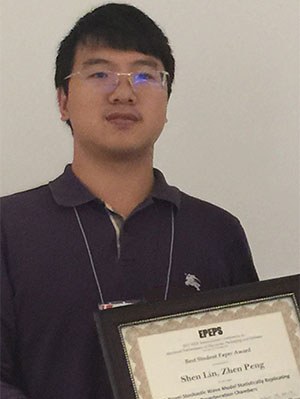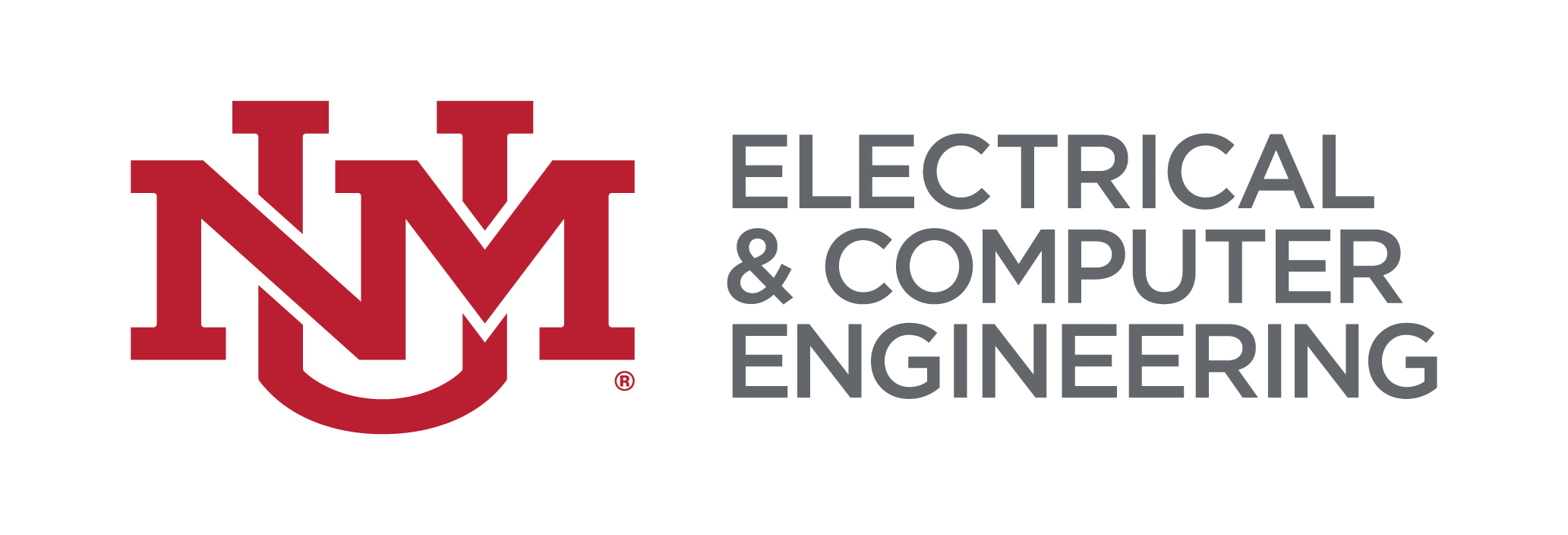Recent News
February 27 seminar: Stavroula Foteinopoulou
February 25, 2026
February 13 seminar: Francisco Riberi
February 9, 2026
February 6 seminar: Marios Pattichis
February 4, 2026
January 30 Seminar: Unal Sakoglu
January 29, 2026
News Archives
Shen Lin Wins Best Paper at EPEPS
November 5, 2017

ECE Research Assistant Shen Lin was awarded Best Student Paper Award by the IEEE Electronics Packaging Society at the 26th Electrical Performance of Electronic Packaging and System (EPEPS 2017).
EPEPS is the premier international conference on advanced and emerging issues in electrical modeling, analysis, and design of electronic interconnections, packages, and systems.
The winning paper was entitled "A Novel Stochastic Wave Model Statistically Replicating Reverberation Chambers."
ECE Asst Prof Zhen Peng, who guided the work of Shen Lin said, "I am very glad our work was recognized in this large mixed academic/industrial community."
Research for this paper was supported by The AFOSR/AFRL Center of Excellence on the Science of Electronics in Extreme Electromagnetic Environments.
Here is a brief description of the work that Dr Peng and Shen Lin are pursuing, as well as an abstract of the paper:
The pervasiveness of smart cities and burgeoning Internet of Things (IoT) enable a more and more connected world. A key challenge emerging is the analysis, design, and deployment of electronic devices and systems in increasingly sophisticated electromagnetic (EM) environments. In the literature, the mode-stirred reverberation chamber (MSRC) has been used as a standard laboratory facility for the immunity, emission, and susceptibility of electronic components to complex random fields. The fundamental question to be answer in this work is: can we investigate fundamental computational algorithms to replicate complex multipath environments, such that the design and optimization of electronics can be performed in the resulting virtual experimental facility?
This paper presents a novel physics-oriented statistical representation for complex multipath environments, and develops a hybrid deterministic and stochastic formulation incorporating component-specific characteristics. The advancements lead to a stochastic wave model statistically replicating mode-stirred reverberation chambers, and establish an imperative design-under-chaos capability for electronic devices and systems. The theoretical work is evaluated and validated through representative experiments.
